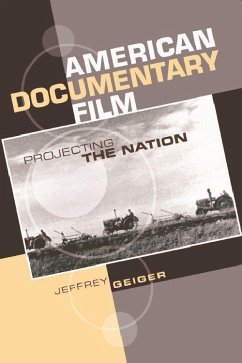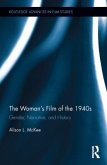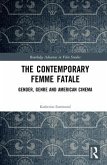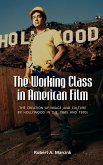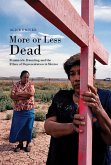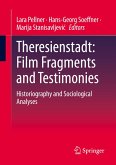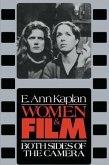AUTHOR APPROVED - PLEASE NO CHANGES NOW FROM DESKED AS V SENSITIVE COPY "In American Documentary Film, Jeffrey Geiger examines the role of documentary film in mobilizing, promoting, and even suppressing central myths of U.S. national identity. His brilliant close readings illuminate the relationship between the rhetorical, technical and stylistic elements of specific films and a broader set of contexts and concerns. Rigorous yet accessible, this elegantly-written book will be of great value to the general reader and the specialist alike, and it will transform the way we consider the history, theory, and practice of documentary filmmaking." Valerie Smith, Princeton University What key concerns are reflected in documentaries produced in and about the United States? How have documentaries engaged with competing visions of US history, culture, politics, and national identity? This book examines how documentary films have contributed to the American public sphere - creating a kind of public space, serving as sites for community-building, public expression, and social innovation. Geiger focuses on how documentaries have been significant in forming ideas of the nation, both as an imagined space and a real place. Moving from the dawn of cinema to the present day, this is the first full-length study to focus on the extensive range and history of American non-fiction filmmaking. Combining comprehensive overviews with in-depth case studies, Geiger maps American documentary's intricate histories, examining the impact of pre- and early cinema, travelogues, the avant-garde, 1930s social documentary, propaganda, direct cinema, postmodernism, and 'new' documentary. Offering detailed close analyses and fresh insights, this book provides students and scholars with a stimulating guide to American documentary, reminding us of its important place in cinema history. Key Features 1. Historical overview of major documentary form
Hinweis: Dieser Artikel kann nur an eine deutsche Lieferadresse ausgeliefert werden.
Hinweis: Dieser Artikel kann nur an eine deutsche Lieferadresse ausgeliefert werden.

